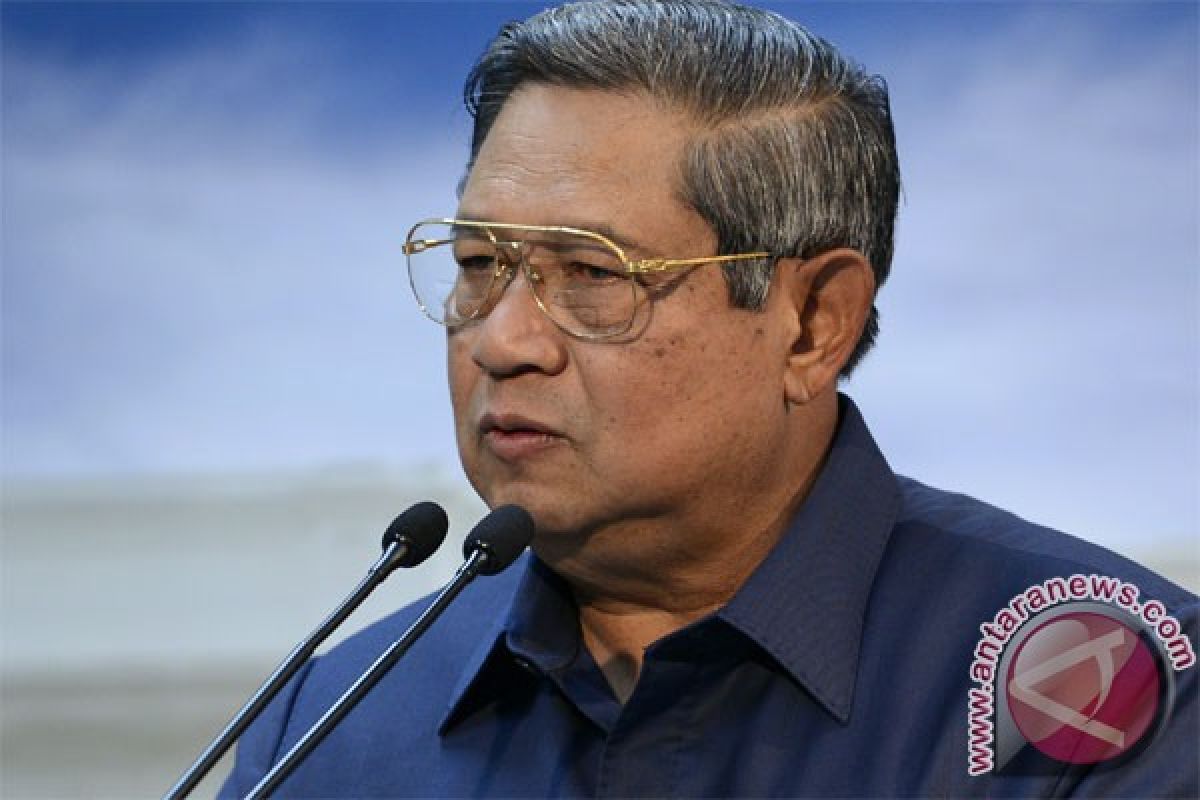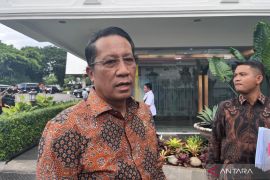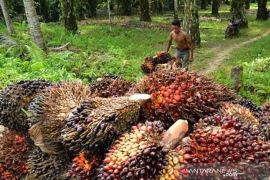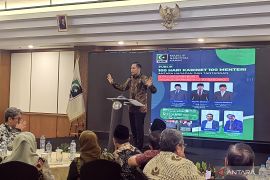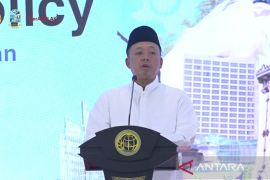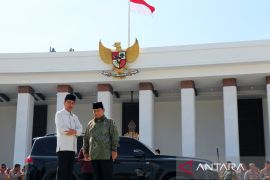If Plan A does not work, we will use plan B.Jakarta (ANTARA News) - President Susilo Bambang Yudhoyono in a press conference on Tuesday morning said the government was planning to challenge the newly-inaugurated indirect regional election law which was passed by the Parliament last week.
"We are now discussing on other ways to save the election system which I think is the best for Indonesia, that is direct election with some requirements following it. If Plan A does not work, we will use plan B," said the president at the Halim Perdanakusuma airport.
Yudhoyono said there was no personal interest or any other interest related to the governments effort to fight for the direct election system.
Earlier the chairman of the Indonesian Constitutional Court, Hamdan Zoelva, confirmed that President Susilo Bambang Yudhoyono had called him to talk about the recent ratification of the Regional Elections Law by the House of Representatives (DPR).
"Yes, it is true that yesterday evening (Sunday, Sept 28), Mr. President called me," Hamdan told the press last Monday.
Hamdan noted that during the phone conversation, President Yudhoyono expressed his disappointment over the result of the DPRs voting that has ratified the Regional Elections Law under which the regional heads will be elected by the Regional Legislative Assembly.
Hamdan said he informed Yudhoyono that in accordance with the Constitution of Indonesia, the law was drafted by the DPR with the prior acceptance of the government.
"I gave him the example of the Riau Island Laws ratification: At that time, Madame Megawati (then Indonesian president) did not agree and, principally, did not sign to ratify the law. However, based on Article 20, Line (5), of the Constitution Law, whether or not a president signs a law, it automatically becomes applicable," Hamdan explained.
Hamdan added that Article 20, Line (5), of the Constitution Law, was framed based on a case that took place during the tenure of President Soeharto (the second Indonesian president). There were some laws that were accepted by the DPRs plenary meeting, but Soeharto did not sign them, hence they could not be applied.
A similar case arose during the tenure of President BJ Habibie (the third Indonesian president), when the State of Emergency Law was not signed by him, and it could not be applied.
"Keeping those constitutional cases in mind, during the amendment of the 1945 Constitution Law through Article 20, Line (5), it was stated that if a law was ratified by the DPRs plenary meeting, it would be automatically applied with or without the Presidents signature," Hamdan noted.
"I said that (to President Yudhoyono) as I, too, had participated in the drafting of the 1945 Constitution Laws amendment," he added.
Hamdan denied that President Yudhoyono had asked the Constitutional Court to annul the Regional Elections Law.
"No president would ask the Constitutional Court to annul the Regional Elections Law," he stressed.
This time, the Constitutional Court had received three submissions for judicial reviews on the Regional Elections Law.
According to the Constitutional Courts administrative officer, Denny Feishal, the three submissions were made by a group of six individuals plus four non-governmental organizations (NGOs), renowned lawyer OC Kaligis, and another group of 13 individuals.
Besides these submissions, more NGOs such as the Daily Labors Association, represented by its lawyer Andi Asrun, and the Poso Community Association will also submit their judicial review proposal.
When asked, Andi Asrun said the proposals were submitted to the Constitutional Court on Monday (Sept 29) at 2 pm local time.
(A051)
Editor: Ella Syafputri
Copyright © ANTARA 2014
